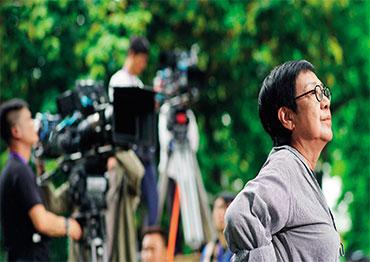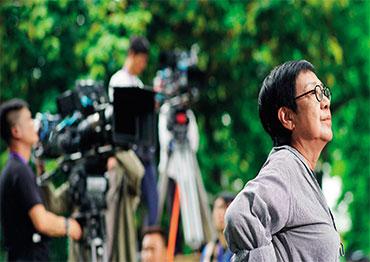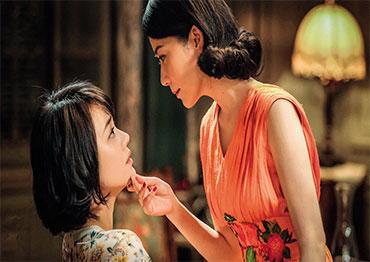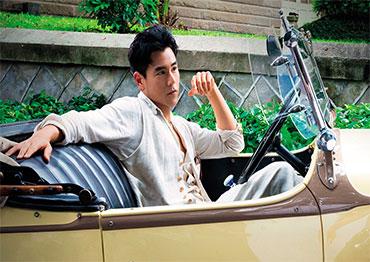Though they never met face-to-face, Hui had felt a connection with Chang since childhood.
In 1939, then-18-year-old Chang left Shanghai to study English literature at the University of Hong Kong. Her schooling, however, came to a halt in 1942 after the outbreak of the Pacific War during World War II.
She returned to Shanghai and started her career as a professional writer. In 1943, Chang astonished Shanghai’s literary world with her debut, the novella Aloeswood Incense: The First Brazier. Readers were amazed by the young writer’s exceptional wit, shrewd observations, and her unique modernist style.
In 1952, Chang moved to Hong Kong, where she worked as a writer and translator for the United States Information Agency, a department engaged in foreign affairs. That year, Hui was 5 years old, and had just moved to Hong Kong from Macao with her family.
Hui’s family lived in North Point, the northeastern part of Hong Kong Island. Because many Shanghainese moved to North Point after World War II, the area was nicknamed “Little Shanghai.”
It was at a photo studio in North Point that Chang took her most iconic portrait: Dressed in a high-collared qipao, Chang wears an unyielding expression, her right hand on her hip.
While in primary school, Hui befriended a classmate whose mother made a deep impression on her: She was an extraordinarily elegant Shanghainese woman who always wore exquisite qipao and walked with a parasol. Hui later learned that the woman was Mae Fong Soong. She and her husband, Stephen Soong, were Chang’s best friends. They became executors of her estate after she passed away in Los Angeles in 1995.
Like Chang, Hui studied literature at the University of Hong Kong. There she began reading Chang’s works. Hui read Aloeswood Incense: The First Brazier in 1978 in Hong Kong after returning from a two-year post-graduate program at the London Film School.
While reading The First Brazier, Hui was deeply impressed by Chang’s exceptional ability to weave images, colors and senses with words. “As I read her prose, I felt like I could picture the scenes in my mind immediately. They were so vivid and iridescent. I think it is the most colorful story that Chang ever wrote,” Hui told NewsChina.
According to Xu Zidong, a Chang scholar at Hong Kong’s Lingnan University, The First Brazier is the most cinematic of her works. “It has story, romance, depth and is popular,” he told NewsChina.
“Chang intentionally adopted cinematic approaches in writing this story. It features lots of montages, sensuous depictions and blurred narrative perspectives, which creates a distancing effect,” Xu said.

 Old Version
Old Version


